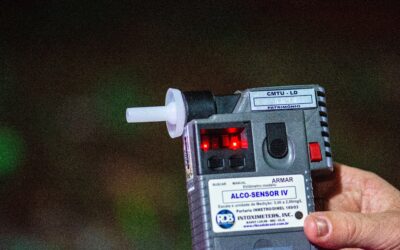Minnesota’s Conditional Release Terms
When convicted of a crime and sentenced to jail or prison, there are circumstances when the prisoner is released early. There are four different types of conditional releases in Minnesota.
- Supervised Release – The offender spends some time out of the prison but under the direct supervision of a probation officer. However, this supervised time is not included as part of the sentence and the person must complete the specified sentence.
- Conditional Release – The offender is released from incarceration with strict conditions attached to being set free. In the case of any violation of the orders, conditional release is revoked and the person returned to prison.
- Parole Release – Granted by a parole board, it is a permanent but supervised release before the end of the sentence. Breaking any of the conditions set by the board may result in the parole being revoked and the offender being returned to prison.
- “Good Time” – This is relaxing the initial sentence because of the prisoner’s good behavior behind bars.
Free Case Evaluation
Mandatory Conditional Release
Certain types of criminal convictions come with mandatory terms of supervised release. These crimes include criminal sexual conduct crimes and felony DWI crimes. Conditional release means that the person will have to serve time in prison first, but then even after release from prison the person will be on strict supervision with the Department of Corrections for a period of time established by law – sometimes five years, ten years, or lifetime.
Contrast Minnesota’s mandatory conditional release laws against the typical prison and parole system. Typically if a person is ordered into prison, let’s say for example it’s for nine years, the person would serve two-thirds of the sentence in prison and the remaining one-third of the sentence on parole – that’s six years in prison and three years on parole. After successful completion of parole, the person is completely finished.
It works much differently when we’re dealing with mandatory conditional release for some sex and DWI crimes. Taking the same example of nine years, the person might do the six years in prison, then the three years on parole – but then still will be required to serve an additional five years or more on mandatory conditional release. It’s critical that you know what you’re up against if there’s a possibility of mandatory conditional release.
Call Experienced Mandatory Conditional Release Lawyers in Minnesota
Persons dealing with mandatory conditional release, or anyone fighting sex or felony DWI crimes in Minnesota, must defend themselves against the charges. Do not talk to the cops and call the experienced Minneapolis criminal defense attorneys and St.Paul criminal defense attorneys at Sieben Edmunds Miller.
Get a Free Case Evaluation
We are here to help. Let us evaluate your case for you. Free of charge – no obligation. Complete our free case evaluation form or call us directly at (651) 323-2464.
Recent Blog Posts
Common Misconceptions About CHIPS Cases in Minnesota
For many parents, learning that they are involved in a CHIPS (Children in Need of Protection or Services) case is overwhelming. Unfortunately, there are many misconceptions about how these cases work, what rights parents have, and what outcomes are possible....
Understanding Your Rights in a CHIPS Case: A Guide for Minnesota Parents
When facing a CHIPS (Children in Need of Protection or Services) case, parents often feel overwhelmed, confused, and uncertain about what rights they still have. While the court and social services are involved in determining what is best for the child, parents are...
Challenging the Results: How a Criminal Defense Attorney Can Fight a DWI Charge Based on Faulty Field Sobriety Tests
A DWI arrest in Minnesota can be a frightening and disorienting experience. Often, the prosecution's case hinges heavily on the results of field sobriety tests (FSTs). However, these tests are not infallible, and a skilled criminal defense attorney can challenge their...
What Are the Legal Consequences of Street Racing in Minnesota?
Street racing is a dangerous and illegal activity that poses a serious threat to drivers, passengers, and pedestrians. In Minnesota, participating in or organizing a street race can result in severe criminal penalties, including jail time, hefty fines, license...
Cuando la Inmigración Se Cruza con el Derecho Penal: Protegiendo Su Futuro Frente a Desafíos Legales
Navegar por el sistema legal como inmigrante puede ser abrumador, especialmente cuando están involucrados cargos criminales. Como abogada de defensa penal con experiencia en derecho de inmigración, he visto cómo estas dos áreas pueden afectar profundamente a la vida...
When Immigration Meets Criminal Law: Protecting Your Future in the Face of Legal Challenges
Navigating the legal system as an immigrant can be overwhelming, especially when criminal charges are involved. As a criminal defense attorney with a background in immigration law, I've seen how these two areas intersect in ways that can deeply affect lives. In this...
Free Case Evaluation
Contact Info
Note: The use of the Internet or this form for communication with the firm or any individual member of the firm does not establish an attorney-client relationship. Confidential or time-sensitive information should not be sent through this form.




